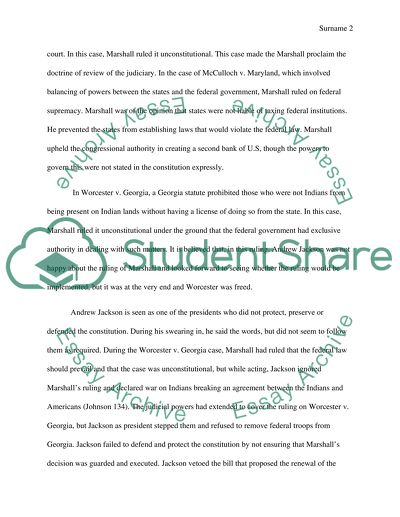Andrew Jackson and John Marshall Essay Example | Topics and Well Written Essays - 500 words. Retrieved from https://studentshare.org/history/1584921-andrew-jackson-and-john-marshall
Andrew Jackson and John Marshall Essay Example | Topics and Well Written Essays - 500 Words. https://studentshare.org/history/1584921-andrew-jackson-and-john-marshall.


